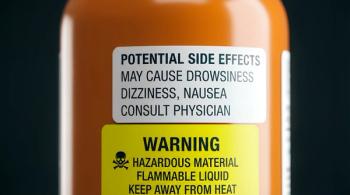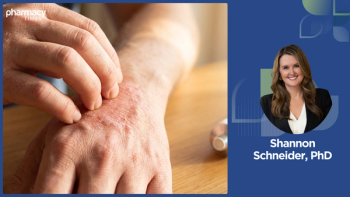
Cardiovascular Drugs Should be Dosed Differently by Gender
Women experience more severe adverse events related to cardiovascular drugs.
Numerous factors play a role in determining the proper dose of a prescription drug. Optimal dose varies from person to person, even if the same drug and condition are involved.
Dosing for
“Cardiovascular diseases kill a greater proportion of women than men in Europe, and they kill twice as many women as all cancers combined,” said lead author Dr Juan Tamargo. “Cardiovascular drug recommendations are based on clinical trials in middle-aged men. Women have more adverse reactions from current dosages and may stop taking preventive medication, leaving them unprotected despite their higher risk.”
In the paper, the authors identify the key differences between men and women that may influence treatment for cardiovascular disease.
The authors state that since a majority of clinical trial results are based on men, current dosing recommendations may not be entirely accurate, according to the study. Additionally, women may be at an increased risk of the condition based on longer lifespans.
Another important difference is that women are more likely to experience adverse events that are severe and more common. This may suggest that women are receiving doses of cardiovascular drugs that are too high, according to the study.
The authors found that women have a 1.5- to 1.7-fold increased risk of experiencing adverse reactions to cardiovascular drugs. These incidences, such as drug-induced torsades de pointes and severe bleeding, are more likely to lead to hospitalization in women compared with men, according to the study.
Older women with low body weight are also more likely to experience statin-induced myopathy.
“Women have more adverse reactions because for many drugs the same dose is recommended for everyone irrespective of body weight,” Dr Tamargo said. “This can lead to higher plasma levels and overdoses in women.”
Interestingly, women have also been found to receive less preventative treatments than men. Women also tend to be treated less aggressively than men, according to the study.
Biologically, the pharmacokinetics of common cardiovascular drugs vary among women and men.
The authors said that the bioavailability and plasma levels of aspirin are higher in women compared with men. This suggests that there is lower activity of the aspirin esterase enzyme, in addition to a higher distribution and lower clearance of the drug, according to the study. Notably, the authors reported that these findings disappear when women undergo treatment with oral contraceptives or become pregnant.
“Sex-related recommendations for drug dosages are not included on labels, even for drugs with a greater than 40% difference in pharmacokinetics between men and women,” Dr Tamargo said.
Pharmacodynamics for cardiovascular drugs also differ among the sexes, according to the study. For women, aspirin has a higher protective effect against stroke, while it is highly protective against heart attack in men.
The authors suggest enrolling more women in clinical trials and educating prescribers about the pharmacokinetic and pharmacodynamic differences of cardiovascular drugs in women and men, according to the study.
The authors recommend that sex-specific guidelines are necessary for dosing cardiovascular drugs and that the doses should be included on drug labels.
“The most effective way to minimise [sic] adverse drug reactions in women is to develop and implement sex-specific guidelines for cardiovascular drugs,” Dr Tamargo concluded.
Newsletter
Stay informed on drug updates, treatment guidelines, and pharmacy practice trends—subscribe to Pharmacy Times for weekly clinical insights.

































